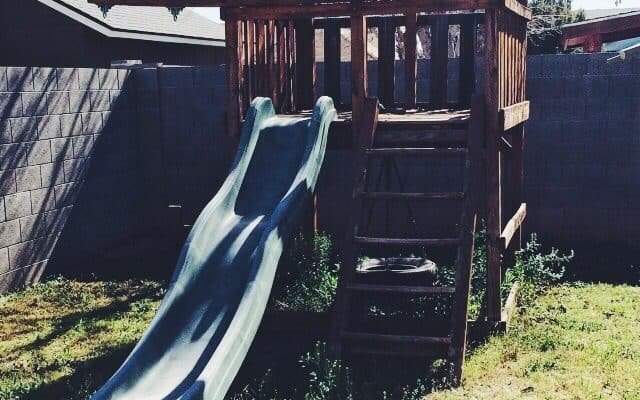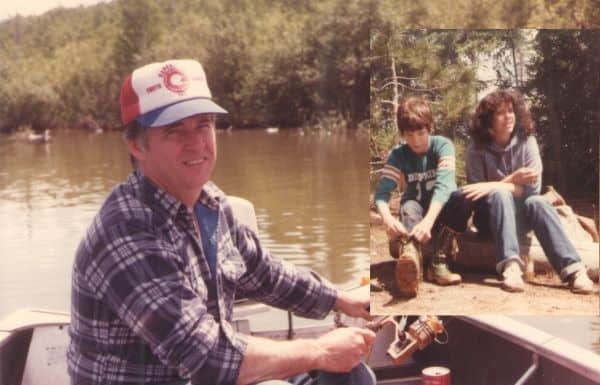Painful Truths of Grieving

In Honor of Chuck Ballard
1972-2016
April 6, 2016. Saint Francis Hospital. Day 3: My daddy’s fight against colorectal cancer came to an end that night, in a white hospital room surrounded by the people who loved him most. We’d known that it was coming for three days and we still weren’t ready. I’d been sitting beside his bed when he started to go. My mom held his hand and we watched his spirit go to the Lord. I was in the room, only 17, while my brother and sister were out in the waiting room. It didn’t hit me when the nurse turned off his machines or when my siblings were told. No. I didn’t realize my daddy was gone until I went back to his hospital room after he’d been cleaned up.
Nobody prepared me for what would follow my daddy’s death. I wasn’t informed about the emptiness I would feel when I walked into my parents’ room, knowing he wouldn’t be there when I got home. There was no mention of the friends I would lose because I was grieving and couldn’t be the person they wanted anymore. Losing my daddy is a pain that I will carry with me for the rest of my life.
His passing has taught me more about grief than I thought possible:
Grief doesn’t stop because you’ve returned to your normal life.
After the death of a loved one, it is rarely our choice to return to our normal lives. Adults have bills to pay and must go back to work. Adolescents go back to school. These aren’t situations that we can control during the grieving process. This is a reminder that grief doesn’t magically stop when we’re trying to find a new “normal” without them. There are always people that expect us to be the same people with the same priorities and commitments that we’ve had before the death of a loved one. This is rarely, if ever, the case. Healing and finding a way to live without them takes time.
Grief cannot be put into stages.
Grief is unique for every person facing it. Another 17-year-old girl could lose her father to colorectal cancer in the same way that I did and experience the situation differently than I do. Even if the situations are similar, their grief is not. No one will go through the same thoughts and feelings in the same order or for the same amount of time. Human emotion is a swirling vortex that does not adhere to five perfect stages. More people need to understand that grief is not a linear progression of emotion. It is fluid and constantly changing.
There’s nothing anyone can say to make the loss of a loved one better.
When someone passes, there’s an overwhelming desire to say something to ease their pain. It’s thoughtful and genuine, but useless. Unless the words involve “time machine” or “miracle cure”, they don’t help with grief. To truly ease their pain, we need someone to be present during our time of grieving. We need someone to stay near when the grief changes who we are. We need someone to be there when a sense of reality returns and the grief becomes overwhelming. Those are the moments when we are vulnerable to the pain and need someone the most.
Sometimes, what people say to make you feel better will make you feel worse.
People have the best intentions when trying to cheer you up and don’t mean any harm. However, harm is a common side-effect of goodwill. There are questions that border on inappropriate and insensitive, where you have to stop and wonder if they really said that aloud. Platitudes such as ‘everything happens for a reason’ often come across as annoying and repetitive. For me, the hardest part is staying quiet about how their words affect me because harm is usually not intended. Still, that doesn’t make it feel any better.
Holidays, milestones, and big events will always be difficult without them.
Only a month after my daddy passed away, I turned 18 and graduated from high school in the same week. After my class was released from the event center, I ran outside to find my family. My friends seemed to have an easier time finding their parents than I did finding my mom. They tried to pull me aside, insisting that they needed pictures. While they pulled me around, I was trying not to cry. It was a big milestone for me. Daddy wasn’t there to see it and I needed Mom. It’s hard to think of all the big events that my daddy will never share with me and that pain doesn’t get easier. Those moments, when you know someone is missing that should be there, will never get easier.
No one wants to hear stories about someone else’s passing while grieving for their loved ones.
After a certain point in life, everyone can claim that they’ve lost a loved one. It could be a grandparent, cousin, parent, or close friend. Those stories about their passing, and how someone coped, are good stories to tell. However, they’re not needed or wanted while others are currently grieving. As mentioned before, it doesn’t help. There is a time for those stories after the dust has settled and you’re asked for advice on how to survive one day further with that gaping hole in your heart. Until then… please, do not share those stories when we are living through our own nightmare.
Death will bring out the best, and worst, in families.
We don’t choose how death affects us or how we grieve, and everyone deals with that differently. When an entire family is affected by the death, it’s harder to keep those emotions controlled. People say and do things they wouldn’t usually because they’re hurt, while others will push their feelings away to provide strength to everyone else. In the end, it’s up to us and our families to decide how we want to move forward despite our pain and grief.
You will find comfort in unexpected places.
For me, comfort comes in the shape of a secondhand Apple Watch, Red Bull cans and a pillow made from his old work shirt. It’s finding things in places I know I didn’t leave them and being called ‘baby girl’ and jokes that aren’t quite funny. They’re subtle reminders of how much I was loved. The bad days are a little bit easier when I can retreat to those things and find security in them. No one should be ashamed of what makes their dark days a bit brighter.
Anger is part of the grieving process.
Death isn’t fair. Be angry about it. Scream, throw things, punch the wall, curse. Get those feelings out of your system. I’ve done all of them and I’m still angry, but that’s okay. Anger, guilt, sadness, relief, fear and acceptance are all emotions that we face when we’re hurting. Most days, I have a tumultuous combination of these feelings and don’t know what to say or do about it. Every day, I find a new way to deal with these emotions. It’s not easy or fun, but I get up and I do it because I know he wouldn’t want anything less from me.








Amazing message. Proud of you